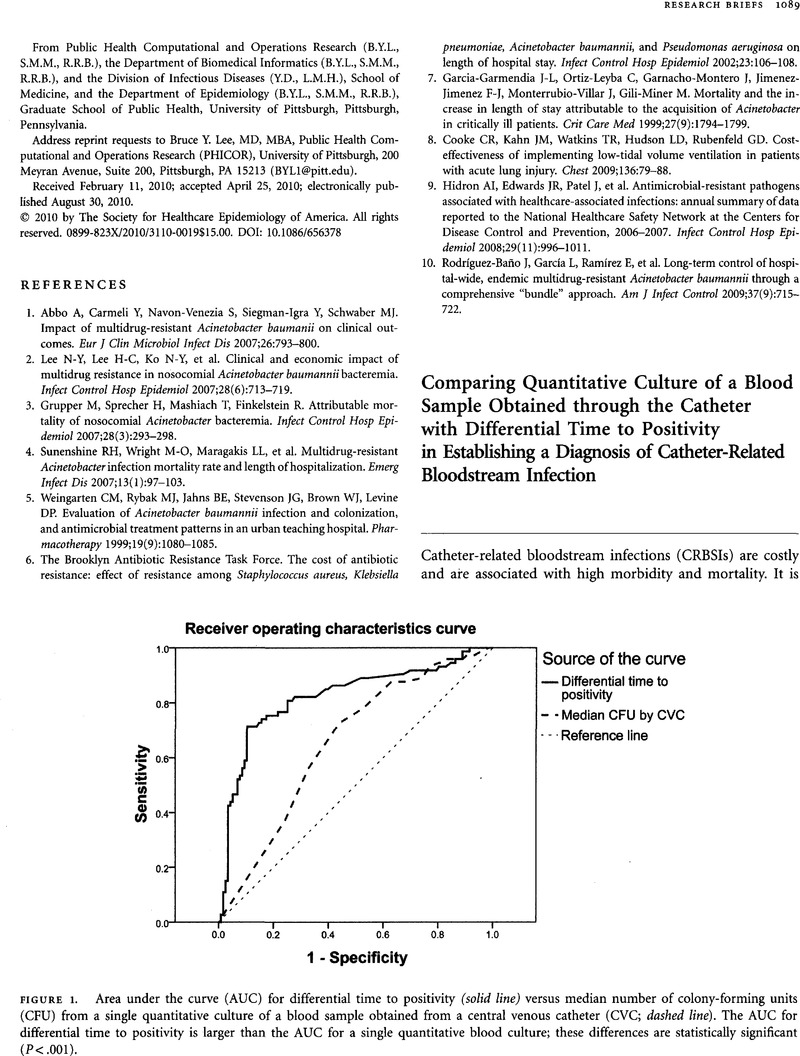Crossref Citations
This article has been cited by the following publications. This list is generated based on data provided by Crossref.
Guembe, M.
Rodríguez-Créixems, M.
Sánchez-Carrillo, C.
Martín-Rabadán, P.
and
Bouza, E.
2012.
Differential time to positivity (DTTP) for the diagnosis of catheter-related bloodstream infection: do we need to obtain one or more peripheral vein blood cultures?.
European Journal of Clinical Microbiology & Infectious Diseases,
Vol. 31,
Issue. 7,
p.
1367.
Beekmann, Susan E.
Diekema, Daniel J.
Huskins, W. Charles
Herwaldt, Loreen
Boyce, John M.
Sherertz, Robert J.
and
Polgreen, Philip M.
2012.
Diagnosing and Reporting of Central Line–Associated Bloodstream Infections.
Infection Control & Hospital Epidemiology,
Vol. 33,
Issue. 9,
p.
875.
Freeman, Joshua T.
Elinder-Camburn, Anna
McClymont, Catherine
Anderson, Deverick J.
Bilkey, Mary
Williamson, Deborah A.
Berkahn, Leanne
and
Roberts, Sally A.
2013.
Central Line–Associated Bloodstream Infections in Adult Hematology Patients with Febrile Neutropenia An Evaluation of Surveillance Definitions Using Differential Time to Blood Culture Positivity.
Infection Control & Hospital Epidemiology,
Vol. 34,
Issue. 1,
p.
89.
2017.
Prävention von Infektionen, die von Gefäßkathetern ausgehen.
Bundesgesundheitsblatt - Gesundheitsforschung - Gesundheitsschutz,
Vol. 60,
Issue. 2,
p.
216.
Dhaliwal, Manreet
and
Daneman, Nick
2023.
Utility of Differential Time to Positivity in Diagnosing Central Line–Associated Bloodstream Infections: A Systematic Review and Meta-Analysis.
Clinical Infectious Diseases,
Vol. 77,
Issue. 3,
p.
428.



